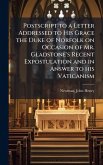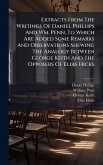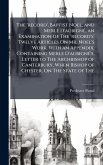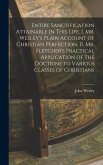This volume, "Remarks On An Extract Contained In A Circular Letter From Dublin, From Mr. Wesley's Sermon On Heb. V. 4," presents a detailed response to criticisms leveled against John Wesley and the Methodist movement in Ireland. Authored by Samuel Steele, with contributions from John Wesley, the work addresses theological disputes concerning episcopal ordination and defends Methodist practices against attacks from Limerick, Newry, and other regions. Steele's treatise meticulously dissects the arguments presented in the circular letter and offers reasoned counterarguments rooted in scripture and Methodist doctrine. The text illuminates the challenges faced by early Methodists in Ireland and provides valuable insights into the theological debates of the 18th century. It serves as a primary source for understanding the development and defense of Methodism in the face of opposition. This work has been selected by scholars as being culturally important, and is part of the knowledge base of civilization as we know it. This work was reproduced from the original artifact, and remains as true to the original work as possible. Therefore, you will see the original copyright references, library stamps (as most of these works have been housed in our most important libraries around the world), and other notations in the work. This work is in the public domain in the United States of America, and possibly other nations. Within the United States, you may freely copy and distribute this work, as no entity (individual or corporate) has a copyright on the body of the work. As a reproduction of a historical artifact, this work may contain missing or blurred pages, poor pictures, errant marks, etc. Scholars believe, and we concur, that this work is important enough to be preserved, reproduced, and made generally available to the public. We appreciate your support of the preservation process, and thank you for being an important part of keeping this knowledge alive and relevant.
Bitte wählen Sie Ihr Anliegen aus.
Rechnungen
Retourenschein anfordern
Bestellstatus
Storno

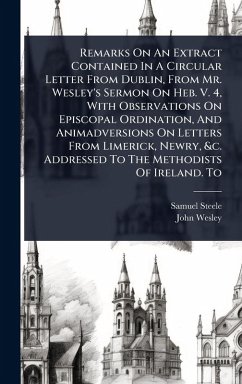

![Remarks on the Rev. Mr. Stanser's Examination of the Rev. Mr. Burke's Letter of Instruction to the C.M. of Nova Scotia [microform]: Together With a Re Remarks on the Rev. Mr. Stanser's Examination of the Rev. Mr. Burke's Letter of Instruction to the C.M. of Nova Scotia [microform]: Together With a Re](https://bilder.buecher.de/produkte/66/66190/66190632m.jpg)
